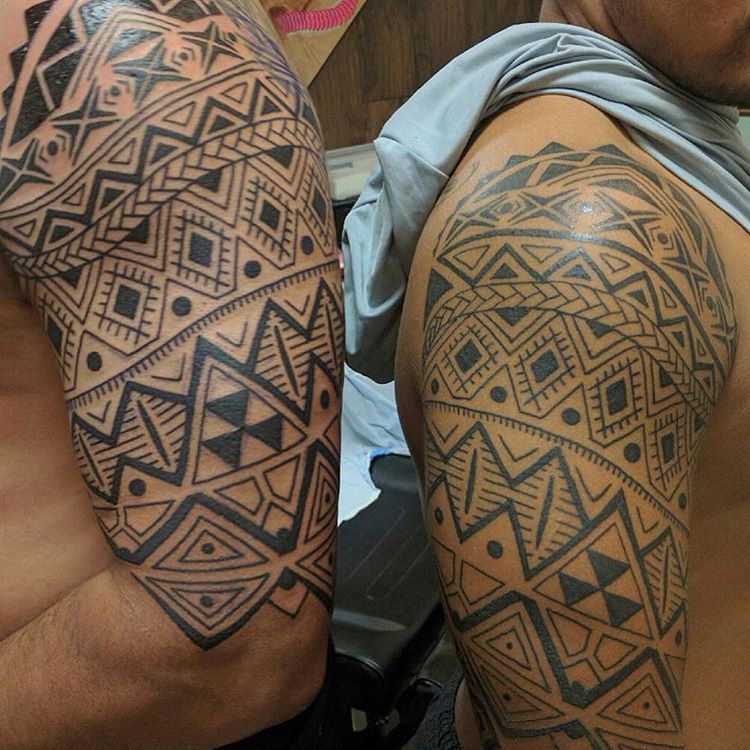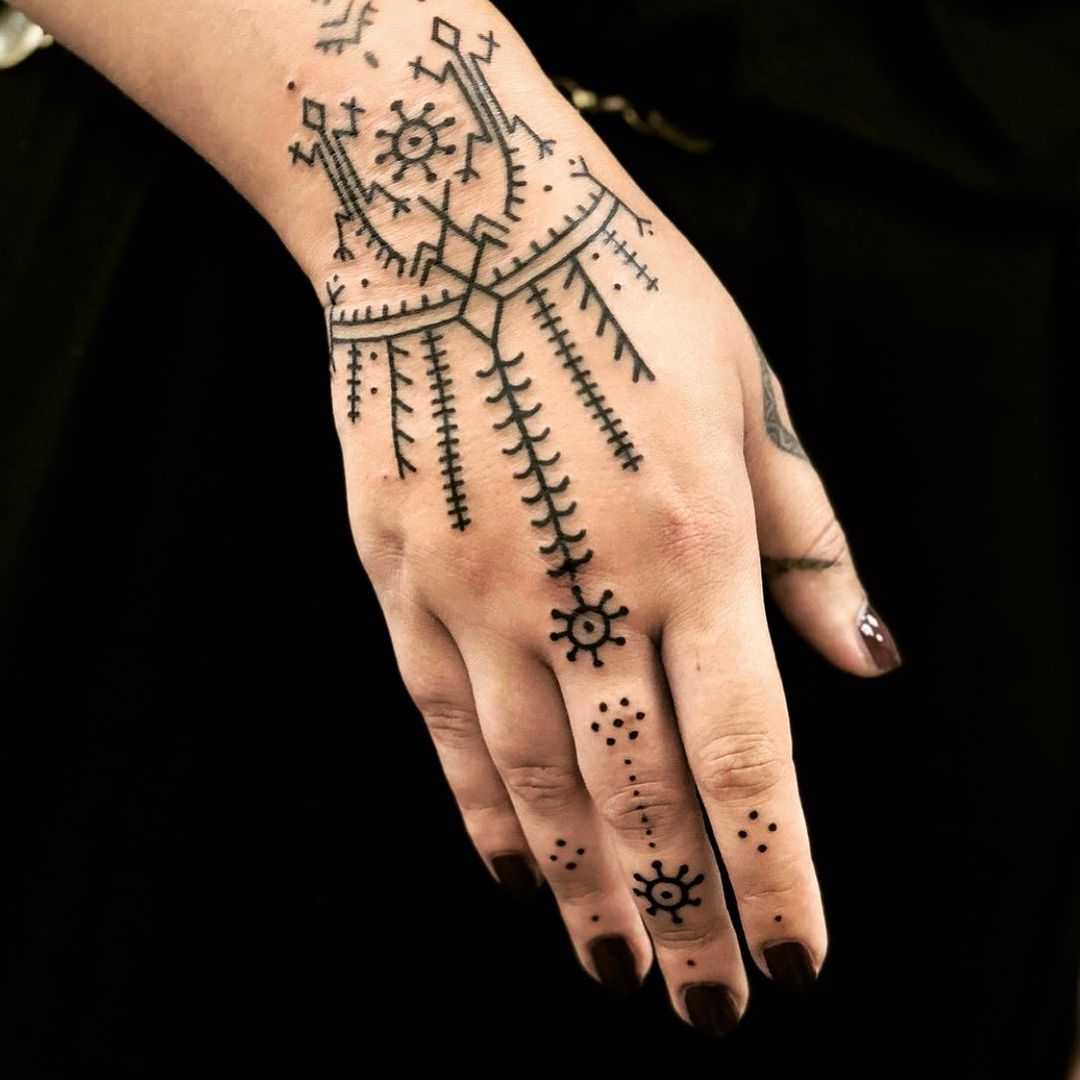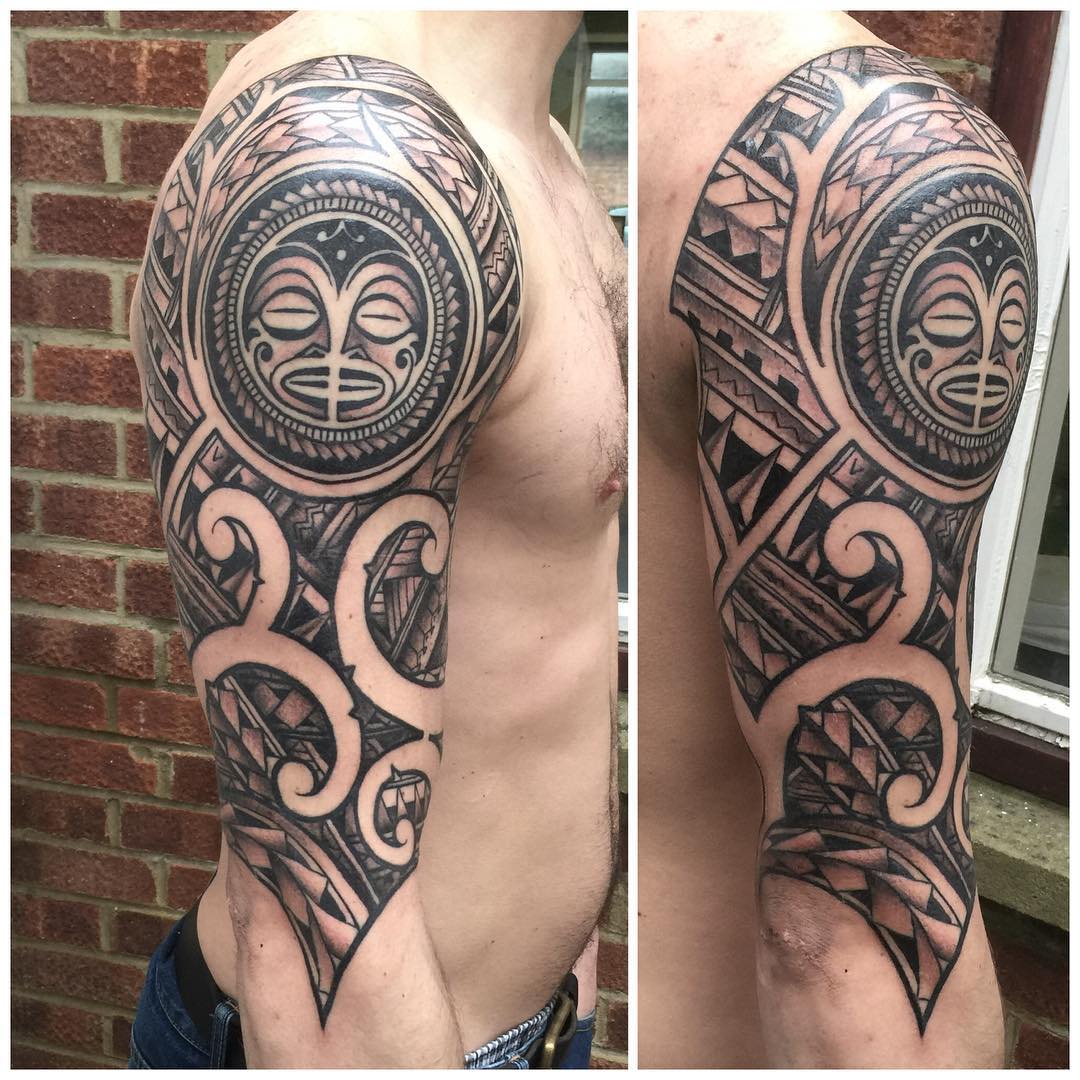African tribal tattoos and meanings have long been a symbol of identity, culture, and tradition. These intricate designs have deep-rooted significance in African communities, often representing personal milestones, clan affiliations, and spiritual beliefs. As we delve into this fascinating world, you will uncover the stories behind these timeless markings and their relevance in today's global tattoo culture.
From ancient times to modern days, African tribal tattoos continue to captivate enthusiasts worldwide. Each design carries a unique story, reflecting the rich diversity of African tribes and their customs. Whether it's the Ndebele, Maasai, or Zulu, each tribe has its own distinct style, making these tattoos not just body art but powerful expressions of heritage.
This article will explore the history, significance, and cultural importance of African tribal tattoos. We'll also discuss how these traditional designs have influenced contemporary tattoo art and their meanings in today's context. Whether you're considering getting one or simply interested in learning more, this guide will provide valuable insights into this ancient art form.
Read also:Masa49 Leak Unveiling The Truth Behind The Controversy
Table of Contents
- History of African Tribal Tattoos
- Common African Tribal Tattoo Designs
- Meanings Behind African Tribal Tattoos
- Tribal Variations and Styles
- Cultural Significance
- Modern Adaptation of African Tribal Tattoos
- Caring for Your African Tribal Tattoo
- Current Trends in African Tribal Tattoos
- Spiritual and Symbolic Importance
- Frequently Asked Questions
History of African Tribal Tattoos
African tribal tattoos date back thousands of years, with evidence of their use found in ancient Egyptian mummies. These tattoos were not merely decorative; they held deep cultural and spiritual significance. In many African societies, tattoos were used to mark rites of passage, signify social status, or protect against evil spirits.
Historically, the process of tattooing was a communal event, often performed during ceremonies or celebrations. The tools and methods varied by tribe, but most used natural pigments derived from plants and minerals. This rich tradition has been passed down through generations, preserving the unique identity of each tribe.
Evolution of African Tribal Tattoos
Over time, African tribal tattoos have evolved, incorporating new techniques and designs while maintaining their core cultural essence. Today, modern tattoo artists often blend traditional African motifs with contemporary styles, creating stunning pieces that honor the past while embracing the future.
- Early tattoos were primarily geometric patterns.
- Symbolism became more intricate as tribes developed distinct identities.
- Modern adaptations retain cultural elements but add personal flair.
Common African Tribal Tattoo Designs
While each African tribe has its own unique tattoo designs, some common motifs appear across various cultures. These designs often include geometric shapes, animals, and natural elements, each carrying specific meanings.
For example, the Ndebele tribe is known for its bold, geometric patterns, while the Maasai incorporate animal symbols to represent strength and courage. Below are some of the most popular African tribal tattoo designs:
- Circles and spirals symbolizing life cycles.
- Animals like lions, elephants, and crocodiles representing power and protection.
- Plants and trees signifying growth and connection to nature.
Design Variations Across Tribes
Each tribe brings its own flair to African tribal tattoos, resulting in a diverse array of designs. For instance:
Read also:Orange City Ia Funeral Home
- The Zulu tribe uses intricate patterns to represent family ties.
- The Himba people incorporate red ochre into their designs, symbolizing blood and life.
- The Berber tribes of North Africa use abstract shapes inspired by their environment.
Meanings Behind African Tribal Tattoos
The meanings behind African tribal tattoos are as diverse as the tribes themselves. These tattoos often serve as visual representations of personal and communal values, telling stories of identity, spirituality, and heritage.
Some common meanings associated with African tribal tattoos include:
- Rites of passage: Marking important life events like adulthood or marriage.
- Protection: Warding off evil spirits or bringing good fortune.
- Identity: Signifying membership in a specific tribe or clan.
Symbolic Elements in African Tattoos
Many African tribal tattoos incorporate symbolic elements that hold deep cultural significance:
- Lines and dots representing the connection between humans and nature.
- Animals symbolizing traits like strength, wisdom, or agility.
- Geometric shapes conveying balance and harmony.
Tribal Variations and Styles
Each African tribe has its own distinct style of tattooing, influenced by geography, history, and cultural practices. Below are some notable tribal variations:
- Ndebele: Known for bold, geometric patterns often worn by women.
- Maasai: Use animal symbols to represent bravery and strength.
- Zulu: Incorporate intricate designs to signify family and community ties.
These variations highlight the rich diversity within African tattoo traditions, showcasing the unique identity of each tribe.
Regional Influences on Tribal Tattoos
The geographical location of a tribe often influences its tattoo designs. For example:
- Tribes in East Africa tend to use animal motifs inspired by their surroundings.
- West African tribes often incorporate religious symbols into their designs.
- North African tribes may blend Islamic influences with traditional patterns.
Cultural Significance of African Tribal Tattoos
African tribal tattoos are more than just body art; they are powerful cultural symbols that connect individuals to their heritage. These tattoos often serve as markers of identity, community, and spiritual belief, playing a crucial role in tribal societies.
In many African cultures, tattoos are seen as a rite of passage, signifying the transition from childhood to adulthood. They may also indicate social status, marital status, or warrior achievements, depending on the tribe.
Modern Cultural Perspectives
Today, African tribal tattoos continue to hold cultural significance, even as they gain popularity globally. Many people choose these designs to honor their African roots or express admiration for the rich cultural heritage they represent.
Modern Adaptation of African Tribal Tattoos
As African tribal tattoos gain global recognition, modern tattoo artists have begun adapting these traditional designs for contemporary audiences. While maintaining the core elements of cultural significance, these adaptations often incorporate new techniques and styles.
Some popular modern adaptations include:
- Combining African motifs with other cultural designs.
- Using vibrant colors to enhance traditional black-and-gray patterns.
- Incorporating personalized elements to create unique pieces.
Challenges in Modern Adaptation
While modern adaptations of African tribal tattoos offer creative opportunities, they also raise concerns about cultural appropriation. It's essential for artists and enthusiasts to approach these designs with respect and understanding of their origins.
Caring for Your African Tribal Tattoo
Proper care is crucial to preserving the beauty and significance of your African tribal tattoo. Follow these tips to ensure your tattoo remains vibrant and meaningful:
- Keep the tattoo clean and moisturized during the healing process.
- Avoid exposure to direct sunlight for the first few weeks.
- Regularly apply sunscreen to protect the tattoo from fading.
By taking good care of your tattoo, you honor the cultural significance it represents and ensure its longevity.
Current Trends in African Tribal Tattoos
In recent years, African tribal tattoos have seen a surge in popularity, with many people embracing these designs as a way to connect with their heritage or express admiration for African culture. Current trends include:
- Minimalist interpretations of traditional designs.
- Combining African motifs with other cultural elements.
- Using bold, vibrant colors to enhance traditional patterns.
These trends reflect the growing appreciation for African art and culture worldwide.
Future Directions for African Tribal Tattoos
As global awareness of African culture continues to grow, we can expect to see even more innovative adaptations of African tribal tattoos. Artists may experiment with new techniques, materials, and styles while maintaining the cultural essence of these designs.
Spiritual and Symbolic Importance
For many African tribes, tattoos hold deep spiritual and symbolic importance. These designs are often believed to offer protection, guidance, or blessings from ancestral spirits. They may also serve as a connection to the natural world, symbolizing harmony and balance.
Understanding the spiritual significance of African tribal tattoos can deepen your appreciation for these designs and their cultural roots.
Frequently Asked Questions
What are the most popular African tribal tattoo designs?
Popular designs include geometric patterns, animal motifs, and nature-inspired elements. Each design carries specific meanings related to the tribe's culture and beliefs.
Are African tribal tattoos painful?
Like any tattoo, African tribal tattoos can be painful, depending on the size, location, and complexity of the design. However, many people find the pain worthwhile for the cultural significance and personal meaning these tattoos hold.
How can I ensure my African tribal tattoo is respectful?
To ensure your tattoo is respectful, research the cultural significance of the design, consult with a knowledgeable artist, and approach the process with humility and appreciation for the tradition.
Kesimpulan
African tribal tattoos and meanings represent a rich cultural heritage that continues to inspire and captivate people worldwide. From their ancient origins to modern adaptations, these designs tell powerful stories of identity, spirituality, and connection to nature.
As you explore the world of African tribal tattoos, remember to approach them with respect and understanding of their cultural significance. By doing so, you honor the traditions they represent and contribute to the global appreciation of African art and culture.
Feel free to leave a comment or share this article if you found it helpful. For more insights into African culture and traditions, explore our other articles on this fascinating topic.


